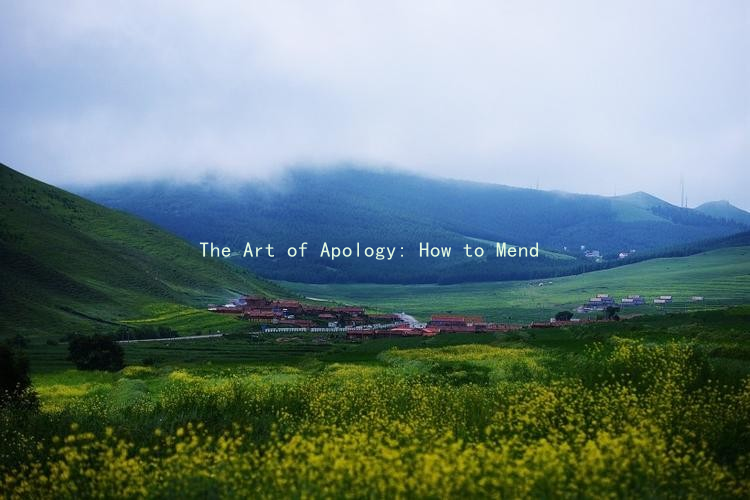The Art of Apology: How to Mend a Broken Relationship
In any relationship, disagreements and misunderstandings are inevitable. Whether its a small oversight or a significant miscommunication, the way we handle these situations can make or break our connections with others. One of the most crucial skills in maintaining a healthy relationship is the art of apology. Knowing how to apologize effectively can help to mend a broken bond and foster a deeper understanding between partners.
Firstly, it’s important to recognize when an apology is necessary. Often, individuals may dismiss their partners feelings or downplay their own mistakes. However, a sincere apology acknowledges the hurt caused by one’s actions or words. Taking the time to reflect on the situation allows for a clearer understanding of how the other person feels. A genuine recognition of their feelings can set the stage for a heartfelt apology.
When you do apologize, it’s essential to be direct and sincere. Avoid vague statements that may come off as insincere or dismissive. Instead of saying, I’m sorry you feel that way, opt for a more personal approach: I am sorry for what I said, and I understand how it made you feel. This direct acknowledgment shows that you are not only aware of your actions but also willing to take responsibility for their impact.
Additionally, avoid making excuses or shifting blame. An effective apology focuses solely on the action taken and its consequences. If the conversation turns defensive, it may further aggravate the situation rather than resolve it. Allowing for vulnerability in these moments can lead to a stronger emotional connection, reinforcing the bond between partners.

Furthermore, timing is crucial when it comes to apologies. Avoid rushing into an apology immediately after a conflict if emotions are still running high. It’s wise to take a step back, allow some time for both parties to calm down, and then approach the situation with a clearer mindset. This pause can help prepare the ground for a more productive conversation.
Another important aspect of apologizing is offering a commitment to change. Simply apologizing isnt enough; it’s vital to express a willingness to rectify the behavior that caused the hurt. Discussing how you plan to change your actions in the future can provide reassurance and restore faith in the relationship. Pledging to work on specific behaviors shows that you are committed to the partnership and to personal growth as well.
Finally, be prepared to give your partner space and time to process the apology. Not everyone is ready to forgive immediately, and that’s completely okay. Respecting their feelings and allowing them to express their emotions can further strengthen the bond. Encourage open dialogue and assure them that you are ready to listen whenever they are.
In conclusion, the art of apology is a vital skill in fostering and repairing relationships. Recognizing the need for an apology, being sincere and direct, avoiding blame, timing your apology, committing to change, and allowing space are all essential components of this delicate process. By mastering the art of apology, you not only mend the fractures in your relationship but also build a stronger, more resilient connection with your partner. Remember, it’s not just about saying “I’m sorry”; it’s about showing that you care enough to make things right.





